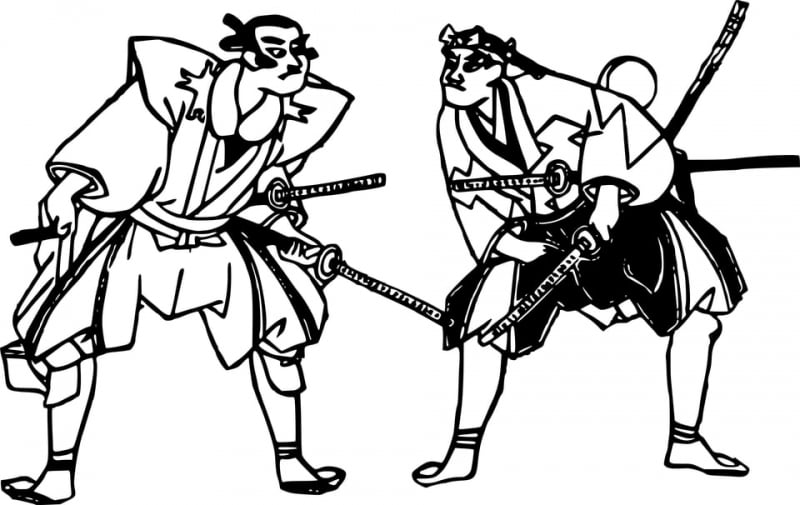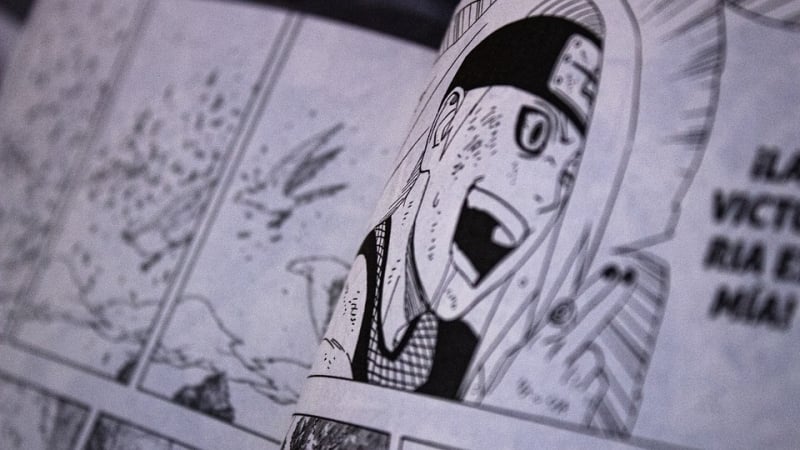If there is a dream vacation for me and my family, it has to be Japan. Whenever I see films, games, or anime from the Land of the Rising Sun, it never fails to take my breath away. From the wide urban spaces found in Yokohama and the busy streets of Tokyo, to the tranquillity in Kyoto‘s many heritage villages, almost everything in Japan looks too good to believe on television. It doesn’t help that these media are expressive with their emotions. Hearing bad words in Japanese adds so much drama to what I’m watching or playing that sometimes I couldn’t help but imitate. So if you have plans to travel to Japan soon, take note of these words and be mindful when saying or hearing them. I know I would!
Also read: 10 Funny Japanese Curse Words That Anime Taught Us

Image credit: OpenClipart-Vectors
1. Uzai うざい
Should you find yourself in an irritating environment filled with noise or distractions, you can probably utter this Japanese cuss word under your breath as it means “annoying” or “irritating”. It’s an expression of mild annoyance at best and can turn things awkward at its worst. But play your cards right, and there’s a chance that it could lead to flirting!
2. Urusai うるさい
Is someone beside you too noisy? If you badly want that person to tone down or stop talking, this is the Japanese swear word to say, as it means “shut up”, literally. You can change its tone drastically by shouting urusei instead, for instances that you’re undeniably incensed!
3. Shimatta しまった or 閉まった
This word means “close” in Japanese but situationally, it can be used as an expletive. It is translated to “damn” or “s**t”. This word has also found its way into everyday lives, from missing the train to beating the red light when driving. In most instances, this word is a kneejerk reaction when a minor inconvenience happens. Out of all the bad words in Japanese, this is the most notable for me because I hear it almost all the time when watching Japanese anime or playing games.
Also read: 5 Commonly Mispronounced Japanese Brands That Might Surprise You
4. Kuso くそ
This is the more definitive version of the s-word and the f-word in Japanese. While shimatta is said on instinct, kuso seems more direct. It’s a rude word to utter for sure, and it can definitely turn heads, maybe a scowl here and there, but nothing that would get you in trouble. While it may not carry the weight of its English counterpart, say it enough times in public and you might get in trouble faster than you think.

Image credit: sebastianperezhdez
5. Baka ばか
Now here’s a popular example. If you watch anime a lot, you might have incorporated this into your vocabulary at some point. I know I did and have been on the receiving end of this as well, mostly among friends. This Japanese curse word means “stupid” or “idiot” in Japanese and gets its mileage from comedy animes or funny interactions between characters. It is harmless at best and an annoyance at worst. Plus, it can be said in a cute-sounding way, too.
6. Bakayarou ばかやろう
And then we go back to the definitive version of Japanese swear words again! Adding –yarou stresses that the person you will use this on is an incomparable jerk. In Japanese, this word can mean “a**hole” in most cases and is reserved for the vilest of villains in anime. If you happen to use this word haphazardly, tread carefully and be prepared for a lot of trouble!
7. Hentai 変態
This is probably the most awkward and obscene entry on this list. Do not make the mistake of being called one. It is embarrassing and disgusting in any case. This is the Japanese word for “sexual pervert” and it does not help at all that there is an entire genre of anime named after it. There is no coming back from this, so don’t do it and don’t even think about it!
Also read: Here’s a List of the Newly Improved Public Toilets in Tokyo, Japan So Far
8. Chikushou 畜生
This is another popular Japanese swear word in most games, but admittedly, I fail to notice this a lot. As always on this list, the gravity of its use depends on the situation. This word translates to “beast” or “animal” and can be used in the same manner as kuso or shimatta. But under undesirable circumstances, it can also mean “son of a b****” or just “b****”.
9. Kisama 貴様
This vitriol-inducing word sounds cool when it is used in anime but in reality, it is one of the more derogatory expletives that one can use in Japan. This word means “bastard” and unless you’re ready to fight someone, under no circumstance should you use the word lightly. However, most elderly people use this as an expression when scolding their grandsons or young kids, so I guess seniority can be the exception?
10. Jiji 爺 or baba 婆
Speaking of the elderly, most Japanese address their elders as ojisan for grandfathers and obasan for grandmothers. This is how to address them properly at any given time. Saying jiji or baba, however, connotes something different, as it can roughly translate to “old codger” or “witch”. Mischievous kids often say this to irritate their elders. Fun fact: the old lady Yubaba’s name from the film Spirited Away translates to “witch from the hot water”.
Also read: Studio Ghibli Theme Park Is Opening in November 2022: Here’s What to Expect!
11. Shine 死
Finally, it doesn’t get blunter than this. This is the ultimate Japanese curse that animes tend to use to convey hate, and they absolutely mean it! This is the Japanese word for “death” or “die”. Characters usually scream to the top of their lungs for dramatic effect, or they whisper it like a prayer if they’re calm and collected while committing the deed. Unless someone has a truly questionable intent, I’d wager that there is no reason to say or hear this in real life.
Also read: Rising Japanese YouTubers that English-Speaking Japan Fans Should Follow
Films, games, and anime sure taught us a lot, huh? It’s diverse enough to learn all of these bad words in Japanese! But of course, the purpose of this is to learn why these words are used. And while knowing these words can be funny, it’s also important enough to learn why the words were uttered. That way, maybe we can prevent something wrong from happening. I guess learning about curse words can be useful for something?





